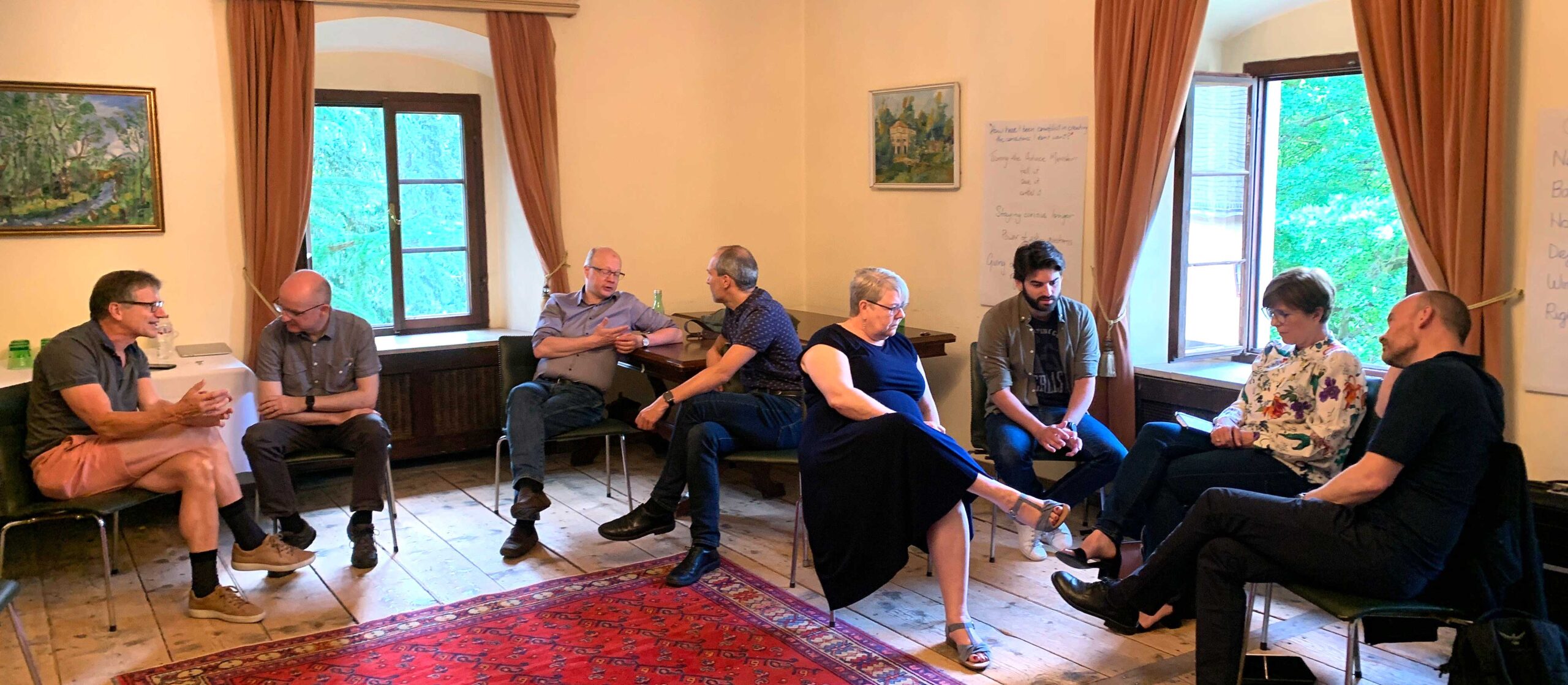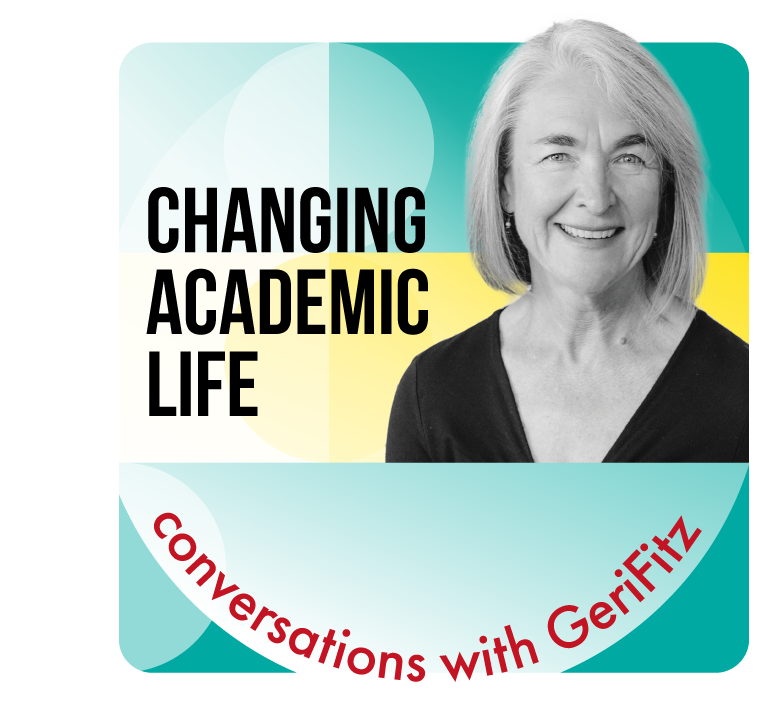We invite you to participate in this intensive residential leadership course for academics in Denmark.
Dates: 22 – 24 May 2024 (Starting Wed 22 May 09:00, finishing Fri 24 May 13:00 after lunch)
Venue: Konventum, Erling Jensens Vej 1, Helsingor
Target Audience: The course is relevant for Department Heads, Deputy-Department Heads, Section Heads, leaders of larger projects or groups, or those considering becoming one.
Language: English
Format: This will be a highly interactive course informed by evidence-based content, with smaller-group and larger-group workshop activities, and opportunities for practice. See below for more details on course themes and expected key outcomes.
Facilitators: The course is facilitated by Prof. Austen Rainer and Prof. Geraldine Fitzpatrick, who both are senior informatics/computing academics with strong leadership backgrounds, complemented by evidence-based approaches to positive leadership practice, and experience teaching academic leadership across Europe.
Registration and Costs:
Early bird registration: 15 December 2023 18,000 DKK
Normal registration after 15 December 20,000 DKK
The registration covers the course, two nights accommodation in a single room with a bath, and full board for the three course days. Transport to/from Konventum is at own expense.
Register by contacting Prof Peter Sestoft, ITU. Full amount to be pardon later than 1 April 2024. Note: Places are limited to 18 Participants – as at 3 Nov only 6 places left.
Course themes:
- Situate your leadership:
- Appreciate the unique opportunities and challenges of academic leadership;
- Locate your academic leadership within its wider context and identify the leadership approach you want to bring to it;
- Lead yourself:
- Evaluate your own values and strengths to provide the foundation for a positive strengths-based approach to your leadership;
- Identify and practise simple techniques to survive and thrive as an academic leader;
- Lead others:
- Appreciate what makes academics tick and how to bring out the best in people;
- Identify and practise simple techniques for building collegial cultures;
Key Outcomes:
With this 3-day residential program, you will:
- Appreciate the unique opportunities and challenges of academic leadership;
- Evaluate your own strengths as an academic leader;
- Locate your academic leadership within its wider context;
- Identify and practise simple techniques for helping you to survive and thrive as an academic leader;
- Identify and practise simple techniques to transform your interactions with the people you are leading;
- Integrate evidence-based recommendations with reflection on your and others’ experience with individual, pair, and small-group activities;
- Develop a plan of action for growing as an academic leader;
- Develop strong professional relationships with other participants as the basis for a subsequent ongoing peer-support network.
What past course participants say:
“The “theory” and discussions took departure in the participants’ own experiences, problems, and concerns, and so felt extremely relevant and applicable. My colleagues and I are really happy with the course. Others are planning to go next year.”
Peter Sestoft, Head of Computer Science Department, IT University of Copenhagen (Denmark)
“All parts were highly valuable. The most value came from the dialogue-based course style from the two facilitators, which was very much guided by the experiences, needs and questions from the participants. I struggle to find anything about the course that could be changed for the better. All topics covered were relevant. The length of the course was perfect, as was the format with reasonable breaks in between the sessions.”
Martin Svensson, Head of Department of Mathematics and Computer Science, University of Southern Denmark (Denmark)
Bios:
Austen Rainer is Professor in the School of Electronics, Electrical Engineering and Computer Science (EEECS) at Queen’s University Belfast (QUB) and currently theme lead for the School’s Software Engineering research theme, which he helped establish in 2020. He successfully advocated for, and led, the installation of a bespoke 90-seat Software Studio, sponsored by Allstate. Since 2020, he has co-facilitated leadership development courses for academics, with Informatics Europe, and also delivered those courses to PhD students at QUB. He was a technical advisor to a technology start-up that received several rounds of funding, including an RAE Fellowship. He is a mentor for the QUB Queen’s Gender Initiative and, previously, was a Bullying and Harassment Advisor.
Austen was previously Head of Department of Computer Science and Software Engineering at the University of Canterbury, New Zealand. He co-founded and chaired Software Innovation NZ, the national software researchers’ network, with paid membership. He was also a member of the establishment team for a five-institute South Island ICT Graduate School, the first of its kind in New Zealand. He introduced team-based final-year software engineering projects with industry, with company sponsorship.
Geraldine Fitzpatrick was a Full Professor Technology Design and Assessment, Head of Human Computer Interaction Group, Faculty of Informatics, TU Wien; Emeritus Professor, TU Wien, as of Oct 2023. Geraldine is passionate about how we can craft better research cultures and enable researchers to bring their best selves to their great work. She is in a unique position to do this as an awarded researcher, teacher and leader, with international experience leading groups in academia, industry and healthcare. This is underpinned by a PhD in CS&EE (Uni of Queensland), an MSc in Applied Positive/Coaching Psychology (UEL), and a clinical background. Her scientific credentials are recognised by awards such as an ACM Distinguished Scientist, an IFIP Fellow, and an IFIP TC-13 Pioneer Award. Her leadership and communication/teaching credentials are evidenced by a SIGCHI Lifetime Service Award, a TU Wien Informatics Best Teacher Award, and having been a sought-after ACM Distinguished Speaker. She is an experienced facilitator/speaker/coach, delivering academic career and leadership development consultancy, speaking, training and coaching internationally for over 15 years, including co-facilitating Academic Leadership Development courses for Informatics Europe. She also hosts the Changing Academic Life podcast series.



